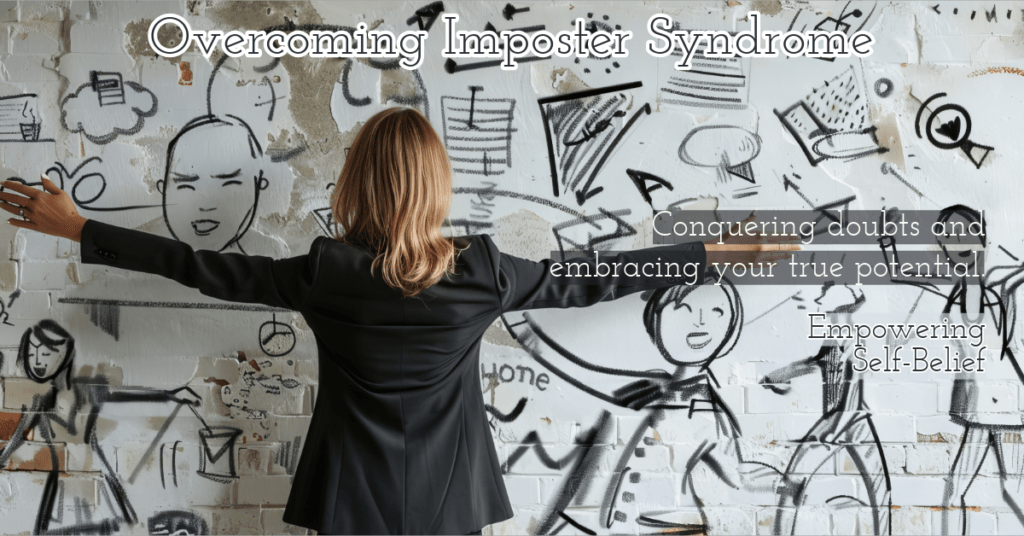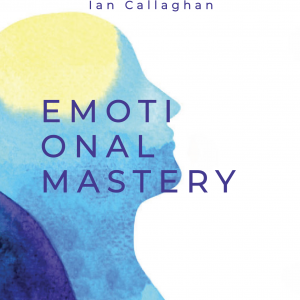
Overcoming Imposter Syndrome: A Journey of Self-Acceptance and Growth
Have you ever felt like you’re just waiting for someone to “find you out?” Like all your accomplishments were just a fluke, and any moment now, everyone will see through the facade?
If you’re nodding along, you’re not alone. 🌱
Imposter syndrome doesn’t care who you are or what you’ve achieved. It creeps up on seasoned professionals and entrepreneurs alike, convincing us we’re just pretending to be “good enough.” It’s that nagging voice whispering, “Who do you think you are?” and it’s exhausting. But here’s the thing: you’re not the only one feeling this way, and you don’t have to stay stuck in that mindset.
So, let’s dive into what imposter syndrome really is, how it shows up, and some powerful techniques to loosen its grip. It’s a journey, but it’s one you don’t have to walk alone.
Recognizing the Signs of Imposter Syndrome
The first step in overcoming imposter syndrome is recognizing it for what it is. Imposter syndrome often shows up as:
🔹 Perfectionism — You set unrealistically high standards and feel crushed when you don’t meet them.
🔹 Self-Doubt — You question your qualifications, even if you’re overqualified.
🔹 Feeling like a “Fraud” — You attribute your successes to luck rather than your skills or hard work.
Ever hit a career milestone, only to worry that it was a one-time fluke? Or constantly think, “I just got lucky”? Recognizing these feelings as imposter syndrome—and not as facts—can make a huge difference.
Mindset Coaching: A Small Shift Can Make a Big Impact
Mindset coaching is a powerful tool for shifting how you see yourself. 🧠 It’s not about “thinking positive” all the time. It’s about learning to challenge those beliefs that keep you playing small.
For example, when self-doubt pops up, try asking yourself, “Is this thought helping or hurting?” Often, it’s just a knee-jerk reaction we don’t question. So let’s question it.
Here’s a simple mindset shift that’s worked for me:
🔸 Replace “I’m not ready for this” with “I’m prepared, and I’ll handle what comes my way.”
These small shifts may seem subtle, but they add up. Bit by bit, they start to build a foundation for real self-confidence. 💪
Practical Techniques to Tackle Imposter Feelings
Once you start noticing imposter syndrome, there are some powerful techniques that can help you tackle it head-on:
✍️ Journaling: When self-doubt flares up, write down your thoughts. There’s something about seeing them on paper that helps you recognize them as just that—thoughts, not truths. This simple habit can be a game-changer.
💙 Self-Compassion: Treat yourself like you would a friend. If your friend was feeling unworthy, you’d remind them of their strengths, right? Offer yourself that same kindness. Self-compassion isn’t just “feel-good” talk; it’s a scientifically backed way to build resilience.
✨ Visualization & Affirmations: Visualization isn’t about imagining a “perfect” version of yourself. It’s about seeing yourself as capable, even in the face of challenges. Try a morning affirmation like, “I am enough, and I deserve my accomplishments.” Practicing this daily helps rewire the mind to focus on your value rather than your doubts.
Why Imposter Syndrome Hits Entrepreneurs Especially Hard
If you’re an entrepreneur, you’re probably nodding along right now. Imposter syndrome is especially prevalent among business owners because of the constant pressure to innovate, lead, and succeed—all without a manual to guide you. 📈
It’s comforting to know that you’re not alone. Nearly 84% of entrepreneurs experience imposter syndrome at some point. Knowing it’s a common part of the entrepreneurial journey can take the sting out of it.
Each time you step out of your comfort zone, it’s a sign you’re pushing boundaries. That discomfort? It’s often a sign of growth. 🌱 Lean into it, and remind yourself that the journey to success is full of learning curves.
The Power of Affirmations and Visualisation

Try a simple affirmation every morning: “I am capable, and I am enough.” Visualise yourself navigating challenges with resilience and see yourself achieving the outcomes you want, yes, but also handling setbacks with grace. Affirmations and visualisation aren’t just buzzwords—they’re tools that can ground you, especially on those days when imposter syndrome is loud. 🔊
Moving Forward with Confidence
Imposter syndrome may not vanish overnight, but these tools can help you loosen its grip. 🕊️ With every small step—whether it’s a moment of self-compassion, a shift in mindset, or a daily affirmation—you’re building a more resilient self-image.
So next time that nagging voice creeps up, take a deep breath, remind yourself how far you’ve come, and keep moving forward. You’ve got this. 💫
Final Thoughts 👇
If this resonates with you, I’d love to hear your thoughts. How do you manage those moments of self-doubt? Share your story or any techniques that have helped you below. Let’s support each other on this journey.
Imposter syndrome is a part of many people’s paths, but Overcoming Imposter Syndrome doesn’t have to define yours. You’re not alone, and you are absolutely enough.
“Calm the Chaos” Graphic T-Shirt
Price range: £27.40 through £39.647-day breathwork challenge
£0.00Calm in Chaos: Ten Exercises for Managing Anxiety in the Modern Age
£9.99Calm The Chaos
Price range: £26.10 through £33.12Calm The Chaos
Price range: £20.00 through £37.56Classic Unisex Pullover Hoodie | Gildan® 18500
Price range: £34.02 through £51.37Cold Water Reset Kit
£9.99Embrace The Chill
£9.99Emotional Mastery: The Emotional Operating System
£14.97








